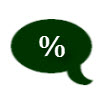!– This material is non-exclusively licensed to Mikel Erdman and may not be copied, reproduced, or sold in any form whatsoever.–>
 The National Association of Homebuilders recently released its Improving Markets Index for the month of February.
The National Association of Homebuilders recently released its Improving Markets Index for the month of February.
The report attempts to identify U.S. metropolitan areas in which the economy is improving, demonstrating “measurable and sustained growth”.
259 U.S. markets are qualified as “improving” this month, a 17-market jump from the month prior and includes participants from all 50 states as well as the District of Columbia.
Experts point to improving market conditions in at least one market in all 50 states as a strong indication that the housing recovery is gaining substantial momentum.
This increasing momentum may suggest that now may be a very good time to purchase a home.
Compared to September 2011, when there were just 12 improving metro market areas, the widespread positive movement indicates how conditions are steadily improving nationwide.
So what qualifies a market as “improving”? The NAHB uses strict criteria.
First, the group gathers data from the three separate, independent sources :
- Employment growth from the Bureau of Labor Statistics
- Housing price appreciation from Freddie Mac
- Single-family housing permits growth from the U.S. Census Bureau.
Next, for each of the above data sets, the National Association of Homebuilders separates for local data in each U.S. major metropolitan area.
And, lastly, armed with data, the NAHB looks for areas in which growth has occurred for all three data points for six consecutive months; and for which the most recent “bottom” is at least six months in the past.
In this way, the Improving Market Index doesn’t just measure housing market strength — it measures general economic strength.
Of the 22 markets added to the Improving Market Index in November, the following cities were included : Chico, California; Columbus, Georgia; Fort Wayne, Indiana; Topeka, Kansas; and Wenatchee, Washington.
Several markets dropped off the list, too, including Champaign, Illinois; Lebanon, Pennsylvania; and Amarillo, Texas.
The complete list of 259 metropolitan areas on February’s IMI, plus breakouts of the metropolitan areas newly added and dropped is available online at http://www.nahb.org/imi.</p

















